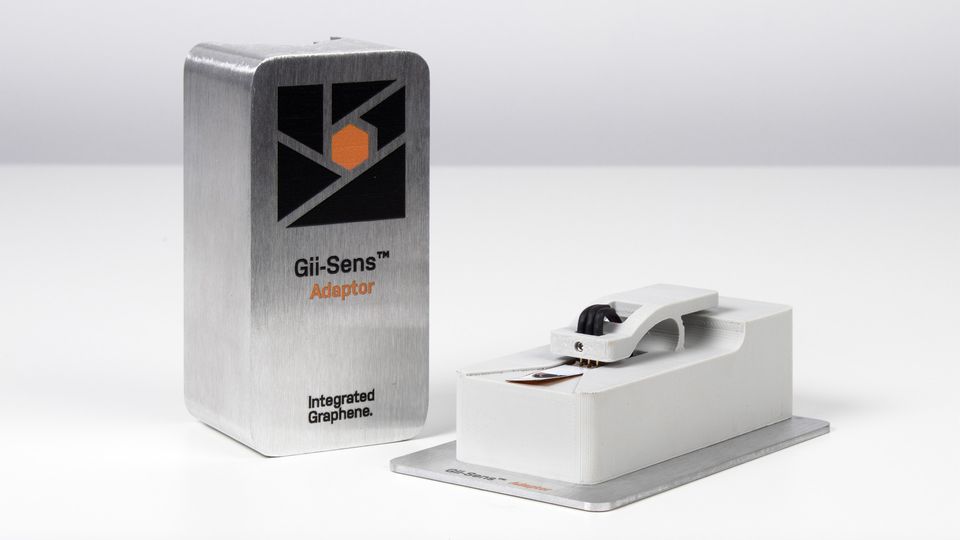Research Breakthrough in Graphene-Based Interleukin-10 Diagnostic Testing

A new study has shown graphene-based biosensors could play a major role in detecting Interleukin-10 (IL-10), an important inflammation regulator, at significantly lower levels than previous point-of-care measurements. This research finding could enhance our ability to use IL-10 as a potential treatment for inflammatory diseases in the future.
The paper, published by Lyon University, analysed the efficacy of Integrated Graphene’s Gii-Sens™ device and found high specificity of IL-10 detection could be achieved outside of lab conditions.
The Gii-Sens™ technology uses saliva-samples similar to Covid-tests but are enhanced by providing quantitative measurements opposed to simply positive or negative results.
Since its discovery more than 30 years ago, IL-10 has emerged as a major suppressor of the immune response and a key player in human disease, driving the regulation of a variety of anti-inflammatory processes. Given its potency, IL-10 is commonly viewed as having significant potential as treatment for a variety of inflammatory diseases.
Current methods to monitor Interleukin-10 include ELISAs, flow cytometry and Western blotting – all requiring lab conditions and specialised equipment. However, electrochemical biosensors provide precise, affordable point-of-care and home care diagnostic tools.
Integrated Graphene's Gii-Sens™ is a novel 3D carbon material with graphene properties but without graphene’s limitation to manufacture at scale, capable of making electrochemical biosensors more accurate and economically viable than other materials or test methods.
Top of the range point-of-care electrochemical biosensors currently use gold and other expensive materials to offer this level of sensitivity. Gii-Sens™ has been proven to outperform gold’s sensitivity with much lower costs.
Point-of-care and home diagnosis have the potential to reduce the burden on health systems globally, replicating lab results outside of clinical settings.
Dr Marco Caffio, Integrated Graphene’s Co-Founder and CSO, said, “The Lyon paper further demonstrates the potential application for Gii to revolutionise biosensing. The specificity of the testing for IL-10 is a positive step towards making early diagnosis (and therefore treatment options) of certain conditions more widely available outside of clinical or lab settings.
“In existing modes of IL-10 detection, the unspecific interaction of the test with other similar molecules causes false results and hinders the precision and accuracy of the detection. Gii’s great results are evidence of the potential of the biosensors and its application.”
Reference: M. Frias IA, Zine N, Sigaud M, Lozano-Sanchez P, Caffio M, Errachid A. Non-covalent π–π functionalized Gii-senseⓇ graphene foam for interleukin 10 impedimetric detection. Biosens. Bioelectron. 2023;222:114954. doi: 10.1016/j.bios.2022.114954

